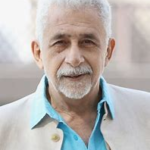
New Delhi – In a high-stakes meeting held on Monday, Congress president Mallikarjun Kharge sought the opinion of party leaders from Delhi and Punjab regarding the Aam Aadmi Party’s (AAP) appeal for support on the Delhi services Ordinance issue. The outcome of the meeting revealed a deep divide within the party, with sources indicating that Congress may not back AAP on the matter.
Leaders from Delhi and Punjab engaged in separate meetings with the party leadership, including former Congress president Rahul Gandhi. The discussions centered around whether Congress should align itself with Arvind Kejriwal’s AAP, with a majority of leaders advising against such a move. They labeled Kejriwal as a “B-team” of the Bharatiya Janata Party (BJP) and accused him of undermining the Congress’ interests not only in Delhi and Punjab but also in other states.
The meeting was prompted by Kejriwal’s request to meet with Kharge and Gandhi to seek their support against a recent Ordinance introduced by the central government. The Ordinance effectively nullified a Supreme Court order that granted the Delhi government the power to transfer bureaucrats in the city, sparking a fierce political debate.
Sources revealed that Kharge has conveyed to Kejriwal that he will make a decision on the matter after consulting with state party leaders. “All the leaders have said the party high command will decide, and we have left it to party chief Mallikarjun Kharge to take the final decision,” said Raja Warring, one of the participants in the meeting.
Notably, former party chief Navjot Sidhu remained tight-lipped about the specifics of the meeting, emphasizing that only Kharge or Gandhi would disclose the details. However, he did express concern about the state of India’s Constitution, stating that its values were at an all-time low. Sidhu cited instances where the central government had allegedly disregarded constitutional principles, contributing to the current crisis.
The decision whether or not to support AAP’s stance on the Delhi services Ordinance has significant implications for both Congress and AAP. Congress must carefully navigate its position, considering the potential impact on its standing in Delhi, Punjab, and other states. Meanwhile, AAP relies on Congress’ support to mount a strong opposition against the central government’s move.
As the Congress high command deliberates, the political landscape in Delhi remains tense. Observers keenly await the final decision, which is expected to shape the dynamics between Congress and AAP in the near future.






